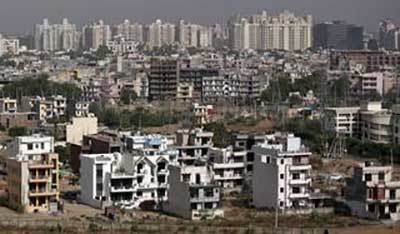Date: 24/01/2023
Relevance: GS-1: Urbanization and Related issues, Funding of Urban Infrastructure.
Key Phrases: Urban development, World Bank, 74th constitutional Amendment, Sustainable Housing, Funding Gap, Private Investment, City Governance, Policy paralysis from the Top, International Bank for Reconstruction and Development (IBRD) and International Development Association (IDA).
Context:
- The World Bank’s report “Financing India’s Urban Infrastructure Needs: Constraints to Commercial Financing and Prospects for Policy Action” underlines the urgent need to leverage more private and commercial investments to meet emerging financial gaps.
Current status of Urban Funding:
- Currently, the central and state governments finance over 75
percent of city infrastructure, while urban local bodies (ULB) finance 15
percent through their own surplus revenues.
- Only 5 percent of the infrastructure needs of Indian cities are currently being financed through private sources.
Estimates of Required Funding:
- By 2036, 600 million people will be living in urban cities in
India, representing 40 percent of the population.
- This is likely to put additional pressure on the already stretched urban infrastructure and services of Indian cities – with more demand for clean drinking water, reliable power supply, efficient and safe road transport amongst others.
- The world bank report estimates that India will need to invest $840 billion over the next 15 years—or an average of $55 billion per annum—into urban infrastructure if it is to effectively meet the needs of its fast-growing urban population.
- Various other reports have estimated a huge demand for funding urban
infrastructure; for example, the Isher Judge Ahluwalia report says
that by 2030, nearly ₹39.2 lakh crore would be required.
- Likewise, the 11th Plan puts forth estimates of ₹1,29,337 crore for four basic services, ₹1,32,590 crore for urban transport and ₹1,32,590 crore for housing.
- A McKinsey report on urbanization has a figure of $1.2 trillion, or ₹90 lakh crore.
Issues in Urban Development:
- There is a huge gap in the funding for urban development.
- The world bank report estimates that India will need to invest $840 billion over the next 15 years—or an average of $55 billion per annum—into urban infrastructure whereas the flagship programmes of the government, the Smart City mission, the Atal Mission for Rejuvenation and Urban Transformation (AMRUT), the Pradhan Mantri Awas Yojana (PMAY), etc., are not more than ₹2 lakh crore (that too for a period of five years).
- A weak regulatory environment and weak revenue collection add to
the challenge of cities accessing more private financing.
- Between 2011 and 2018, urban property tax stood at 0.15 percent of GDP compared to an average of 0.3-0.6 percent of GDP for low- and middle-income countries.
- Low service charges for municipal services also undermine their financial viability and attractiveness to private investment.
- Cities primarily are run by parastatals and the city governments hardly have any role to play in the smooth functioning of such parastatals.
Way Forward:
- The report recommends expanding the capacities of city agencies to
deliver infrastructure projects at scale.
- Currently, the 10 largest ULBs were able to spend only two-thirds of their total capital budget over three recent fiscal years.
- Cities must institute a buoyant revenue base and be able to recover the cost of providing its services.
- Over the medium term, the report suggests a series of structural reforms including those in the taxation policy and fiscal transfer system - which can allow cities to leverage more private financing.
- In the short term, it identifies a set of large high-potential cities that have the ability to raise higher volumes of private financing.
- Regular elections should be held in cities and there must be empowerment through the transferring of the three Fs: finances, functions, and functionaries.
- In the national task force that reviewed the 74th Constitutional
Amendment, chaired by K.C. Sivaramakrishnan, many suggestions
were made such as:
- Empowering the people
- Transferring subjects to the city governments
- Suggesting that 10% of the income-tax collected from cities be given back to them ensuring that this corpus fund was utilized only for infrastructure building.
Conclusion:
- The World Bank report is a reminder of the tragedy which Indian urbanization is witnessing — “policy paralysis from the top”.
Source: The Hindu
Mains Question:
Q. What are the major challenges for the development of Urban cities in India? Also, suggest measures to overcome these challenges. (250 Words).






















